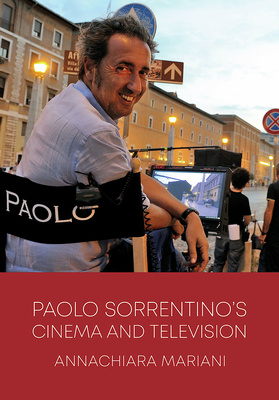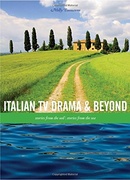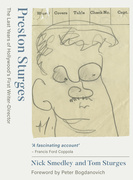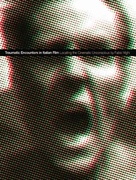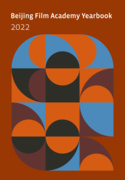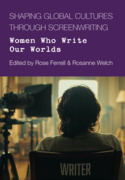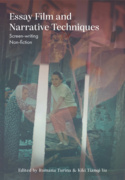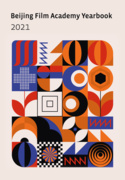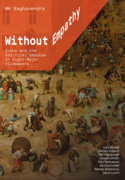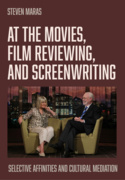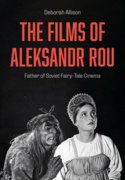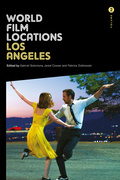Paolo Sorrentino’s Cinema and Television (Book)
New edited collection with a transnational perspective on Paolo Sorrentino, the award-winning Italian director and screenwriter. International contributors take diverse approaches to examine the dominant themes in his work – melancholy, nostalgia and the relationship with solitude - and present original interpretations. 35 b/w illus.
Edition
The Naples-born director and screenwriter Paolo Sorrentino has, to date, written and directed nine films, winning an Oscar, a Bafta and a Golden Globe for The Great Beauty in 2013. In 2016, he created and directed his first TV series, The Young Pope, which starred Jude Law. John Malkovich joined the cast in 2020 for the follow-up series. He has established himself as a world-leading auteur with a list of critically acclaimed and award-winning films.
This is an invaluable contribution to the existing literature on Sorrentino and is the first English language collection dedicated to this prolific director, who has emerged as one of the most compelling figures in twenty-first-century European film.
International contributors from the UK, Italy, France, The Netherlands, Australia, Israel, Canada and the United States, Italy, Israel, France, UK, Australia, Canada, offer original interpretations of Sorrentino’s work. They examine his recurrent grand themes of memory, nostalgia, ageing, love, thirst for fulfilment, search for the self, identity crisis, human estrangement, marginality, irony and power. In so doing, they offer new perspectives and unique cues for discussion, challenging established assumptions and interpretations. Important and current themes such as eco-cinema and post-secularism are addressed as well as the links between Sorrentino’s highly visual cinema and artistic practice such as painting and architecture.
While there are several books on Sorrentino available in Italian, none
of these provide an authoritative account of his work; and language has restricted the readership. This is the first English-language collection focussed on Sorrentino, arguably the most successful and significant contemporary Italian filmmaker.
The majority of the chapters included in this new book are original and it also includes a Foreword by Giancarlo Lombardi, Professor of Italian and Comparative Literature at CUNY, and an interview with renowned costume designer Carlo Poggioli, who has worked with Sorrentino on many productions.
Some of the chapters were previously published in a special issue of the journal JICMS – The Journal of Italian Cinema and Media Studies in 2019. The new collection makes a significant coherent contribution to the field.
Primary readership will be academics, researchers and scholars of Italian film and media studies. Also post-graduate students and upper level under-graduates.
Potential to be used as textbook or as supplementary reading for undergraduate and graduate courses
Given the subject, there is a possibility for some crossover appeal to a broader readership, but this is primarily a scholarly text.
Acknowledgments
List of Illustrations
Forward
Giancarlo Lombardi
Introduction: The Creative and Artistic Trajectory of Paolo Sorrentino
Annachiara Mariani
Part one: Examining and Deconstructing Sorrentino’s Ethos
Chapter 1: Private Pain/Public Places: Sights, Sightings, and Sounds of Nostalgia in Youth and The Young Pope
Ellen Nerenberg
Chapter 2: Against Postmodernism. Paolo Sorrentino and the Search for Authenticity
Mimmo Cangiano
Chapter 3: A Journey from Death to Life: Spectacular Realism and the ‘Unamendability’ of Reality in Paolo Sorrentino’s The Great Beauty
Monica Facchini
Chapter 4: Paolo Sorrentino’s Cinematic Excess
Lydia Tuan
Part two: Sorrentino’s Real and Symbolic Spaces
Chapter 5: Posthuman Sorrentino. Youth and The Great Beauty as Ecocinema
Matteo Gilebbi
Chapter 6: Interpolating the ‘blah, blah, blah’: Rome’s Vocalization Through Architecture in The Great Beauty
Alex Gammon
Chapter 7: The Great Beauty: A Journey Through Art and Relations in Search for Beauty
Michela Barisonzi
Chapter 8: The Urban Dimension as Film Character: Rome in The Great Beauty
Carla Molinari
Part three: A Journey into Sorrentino’s Psyche
Chapter 9: The ‘Primal Scene’: Memory, Redemption and (The Image of) ‘Woman’ in the Films of Paolo Sorrentino
Russell Kilbourn
Chapter 10: Anxiety (of Influence) and (Absent) Fathers in Paolo Sorrentino
Sandra Waters
Chapter 11: ‘È solo l’alito di un vecchio’. Obscenity, Exchange Regimes, and the Catastrophe of Aging in Loro.
Nicoletta Marini-Maio
Part four: Sorrentino’s Postsecular Pope
Chapter 12: The Young Pope’s Credit Sequence: A Postsecular Allegory in Ten Paintings.
Russell Kilbourn
Chapter 13: The ‘Fabrication’ of Religion in The Young Pope: the Double Irony of Post-Secular Iconicity
Monica Jansen and Maria Bonaria Urban
Chapter 14: The Young Pope Between Television and Celebrity Studies
Anna Manzato and Antonella Mascio
Interview with Carlo Poggioli (costume designer of Paolo Sorrentino)
Annachiara Mariani
Bibliography
'This is an extremely valuable contribution to Sorrentino scholarship that, especially when read in conjunction with Kilbourn’s monograph, provides a provocative, wide-ranging and thought-provoking overview of Sorrentino’s originality and significance. Moreover, it does not fail to engage with the more controversial and divisive aspects of his work, such as his treatment of gender (addressed in essays by Russell Kilbourn and Nicoletta Marini-Maio) and alleged privileging of style over content (addressed in essays by Lydia Tuan and Michela Barisonzi). The book should be of great interest to anyone concerned with Italian cinema, contemporary Italian culture, or the state of global film and television today. Sorrentino has finally achieved the recognition he deserves within academia and I am sure this exciting new collection will only serve as a spur to further scholarship.'

